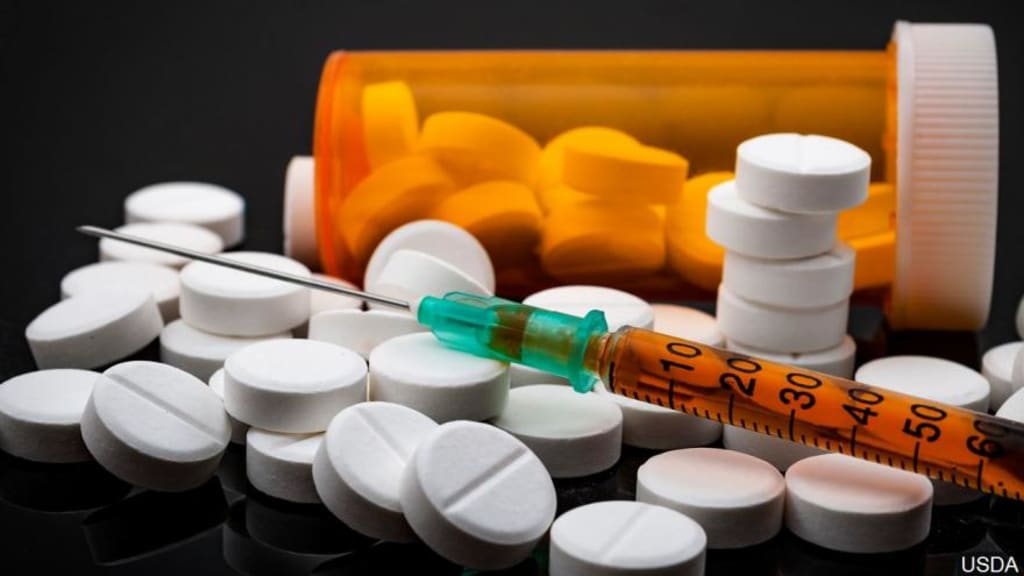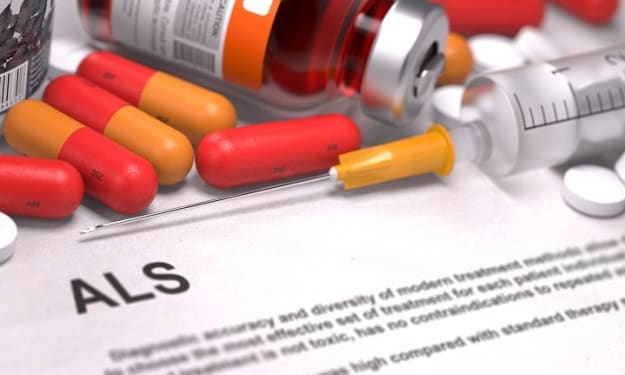Low Dose Naltrexone as a Treatment Option for Epilepsy
LDN is a Treatment of Epilepsy

What is Epilepsy?
Epilepsy is a medical term used for people who undergo multiple seizures during their life. Seizures are the spontaneous and uncontrolled electrical activity of the brain. Based on the way the brain reacts to these electrical flows, a patient might change behavior, exhibit strange movement, or even fall unconscious.
According to the 2020's report, approximately 3.4 million people globally have epilepsy. Most people who suffer from epilepsy use one or more medicines to inhibit seizure activity. Still, almost 30% of patients worldwide get no benefit from current FDA-approved drugs. With the rising popularity of medicinal marijuana for treating epilepsy, researchers have started to study opioids again for different applications. Ultra-low dose naltrexone in combination with cannabis or morphine is being investigated.
How does low-dose naltrexone prevent seizures from occurring?
Ultra-low doses of naltrexone as the only treatment do not inhibit or prevent seizures, but products derived from cannabis, when given in combination, raise the number of electrical signals in the brain required to control a seizure. The specific way ultra-low-dose naltrexone acts with cannabis and opioids in epilepsy is still undiscovered. Investigators think low doses of naltrexone work either to enhance the effects of cannabis or benefits in decreasing tolerance.
What do researchers say about ultra-low-dose naltrexone as a treatment option for epilepsy?
Experiments in mice with ultra-low-dose naltrexone show promising results. Data support to carry out further investigations of combinations of ultra-low-dose naltrexone with opioids and products of cannabis. Though, no data has yet proved any safety to encourage trials in humans. More animal studies are necessary to assess long-term effectiveness. Current tests in rats only aimed to observe one seizure per rat.
Are there any risks associated with the use of low-dose naltrexone for controlling seizures?
As mentioned in the above paragraphs, current experimental data is just for mice following one incident. The consequences of long-term treatment have not been assessed. Seizures may again develop after some time, even when taking the medications. Doses used in mice might not be optimal for humans.
The Harbor Compounding Pharmacy has specialized in custom compounding medicines in different dosage forms. Our pharmacists are well-trained in dosing low-dose naltrexone. LDN prescriptions can be custom-tailored into numerous dosage forms for multiple other diseases and health conditions. If you are interested in learning more regarding low-dose naltrexone, don't hesitate to get in touch with us.
Loss of libido is a female's most significant sexual problem, and it is not in just her head.
Are you living with low libido? For an increasing number of ladies, decreasing hormones, work stress, relationship concerns, and other difficulties are taking their toll on their sex lives.
Unlike men's major sexual infirmity, erectile dysfunction, females' most prominent Female sexual health problem is due to a combination of both emotional and physical circumstances, which do not just go away by simply popping a pill.
Common reasons behind a loss of sexual desire or sex drive in women comprise:
• Decrease in testosterone: Testosterone influences sexual drive in men and women alike. Levels of testosterone therapy are highest in women in their mid-20s and then gradually diminish until they reach menopause when androgen levels drop dramatically.
• Relationship problems: Problems with a partner's performance, absence of emotional comfort with the bond, the delivery of a child, and taking care of a loved one can reduce sexual desire.
• Medical problems: Mental disturbances like depression or anxiety, and medical states, like thyroid disorders, endometriosis, and fibroids, affect a woman's sexual health psychologically and physically.
• Influence of society: Workload, peer pressure, and media portrayal of sexuality can badly impact sexual desire.
• Medications: Some antidepressants such as SSRIs, antihypertensive drugs, and oral birth control pills can reduce sexual desire in several ways by decreasing testosterone levels or decreasing blood flow.
• Age: Levels of androgens in blood fall throughout aging in women.
How Can Women Gain Their Sexual Desire Back?
Because a loss of sex drive in a woman is due to combined physical and emotional determinants, restoring desire usually needs multiple treatment approaches.
Once the actual causes of low sexual desire are identified, treatment approaches may involve:
• Underlying medical problems: Medical conditions that contribute to low sex drive might demand surgical treatment, like removing painful fibroids.
• Sex therapy: Shifren states, "Sex therapy is very effective for individuals and couples, and that is always at the top of my list." Usually, both partners get affected by sexual dysfunction in a relationship. So, both should discuss the problem together or separately with a mental health therapist.
• Topical estrogen cream: In postmenopausal females, vaginal estrogen creams can fix vaginal dryness.
• Certain medicines: If some specific medications cause sexual dysfunction, the doctor should prescribe alternative therapies. If a birth control pill is suspected of reducing levels of testosterone, your physician may suggest a different formulation or other birth control methods.
About the Creator
Harbor Compounding pharmacy
Harbor Compounding Pharmacy in California to provide better health solutions. The aim of this health pharmacy is to provide solutions to all health-related issues. It provides treatment for all diseases and health counseling.






Comments
There are no comments for this story
Be the first to respond and start the conversation.